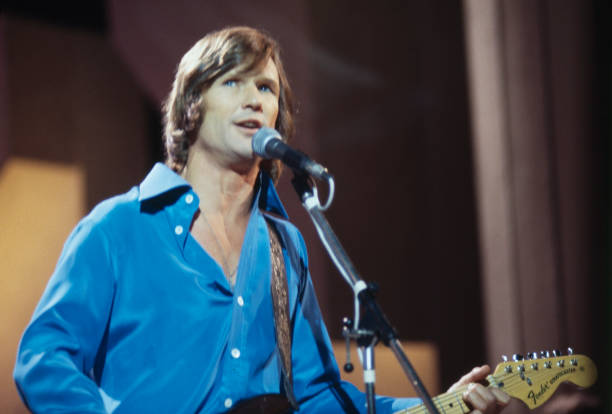 Introduction and Short Summary of the Song
Introduction and Short Summary of the Song
Released in 1970 on Kris Kristofferson’s debut album Kristofferson, “Just the Other Side of Nowhere” is a bittersweet ballad about regret, longing, and the unshakable pull of home. With its plainspoken lyrics and mournful tone, the song tells the story of a drifter who looks back on his life, recalling both the people he left behind and the dreams that slipped away. While not released as a major single for Kristofferson himself, the song became popular through covers by other artists, most notably Johnny Cash, who included it in his live performances and recordings. Over the years, it has remained one of Kristofferson’s most poignant works, exemplifying his gift for capturing complex emotions in simple, evocative language.
Origins of the Song
Kristofferson wrote “Just the Other Side of Nowhere” during his years as a struggling songwriter in Nashville in the late 1960s. Like many of his compositions from that period, the song drew on personal experiences of loneliness, wandering, and regret. Before his breakthrough as a songwriter, Kristofferson had left behind a promising military career, a young family, and the security of conventional life in pursuit of music—a choice that left him often broke and alienated.
---> Scroll down for the VIDEO
The lyrics of “Just the Other Side of Nowhere” reflect that tension: the cost of chasing freedom and ambition, balanced against the longing for home and belonging. The song appeared on his debut album Kristofferson (1970), which introduced many of his now-classic works, including “Me and Bobby McGee” and “For the Good Times.”
Why “Just the Other Side of Nowhere” Was Released
Although it was not pushed as a single, “Just the Other Side of Nowhere” was included on Kristofferson’s debut album because it represented the deeply personal, confessional style that set him apart. At a time when mainstream Nashville leaned toward polished, formulaic songs, Kristofferson’s writing brought raw honesty and literary depth.
---> Scroll down for the VIDEO
The song found wider popularity when Johnny Cash performed and recorded it, giving it exposure to a broader audience. Cash’s version, with his deep baritone and empathetic phrasing, highlighted the song’s themes of regret and redemption. Through Cash, the song reached listeners who might not have encountered Kristofferson’s original, helping cement its place in country music history.
The Message Conveyed in the Song
At its core, “Just the Other Side of Nowhere” is about regret for missed opportunities and the longing to return home. The narrator, a drifter who has spent years on the road, looks back with a mix of sorrow and tenderness:
“Lord, I’ve lost nearly everything I had,
And I can’t find my baby and I know she’s gone for good.”
The message is not one of anger but of wistful acceptance. The song acknowledges the price of leaving behind stability in pursuit of freedom or dreams. Yet it also holds on to the enduring comfort of memory, of “home” as a place of safety, belonging, and identity.
Kristofferson’s delivery emphasizes resignation and humility. The narrator knows he has made mistakes and squandered chances, but he also clings to the hope of redemption, if only in memory.
The Recording and Musical Characteristics
Musically, Kristofferson’s recording of “Just the Other Side of Nowhere” is sparse and intimate.
-
Acoustic guitar carries the melody, emphasizing the song’s folk and country roots.
-
Light bass and percussion give subtle support, keeping the tempo slow and reflective.
-
Kristofferson’s vocals are rough and unpolished, but deeply sincere. His gravelly delivery adds authenticity, making the song feel like a confession shared directly with the listener.
When Johnny Cash recorded the song, he gave it a slightly fuller arrangement, but still maintained the reflective tone. His deep baritone brought a new gravitas to the lyrics, transforming the narrator’s regret into something almost biblical in weight.
The flexibility of the song’s structure allows it to work equally well as a stripped-down folk ballad or a more orchestrated country track.
Cultural and Commercial Impact
While Kristofferson’s own version was not released as a single, “Just the Other Side of Nowhere” gained cultural traction through Johnny Cash’s endorsement. Cash performed it frequently in the early 1970s, and his recording gave the song a life of its own.
For Kristofferson, the song added to his growing reputation as a songwriter who could articulate universal emotions with plainspoken honesty. It resonated with audiences who had experienced their own regrets or who understood the tension between ambition and belonging.
The track also reinforced Kristofferson’s connection to the outlaw country movement. Songs like this—unflinching, confessional, and deeply personal—stood in stark contrast to the glossy productions dominating Nashville at the time.
Legacy of “Just the Other Side of Nowhere”
Today, “Just the Other Side of Nowhere” remains one of Kristofferson’s most beloved songs among fans, even if it was never one of his chart hits. Its themes of regret, loss, and longing for home continue to resonate with listeners across generations.
The song is frequently cited as one of his most autobiographical works, reflecting the struggles he endured before his breakthrough. Its plainspoken honesty has made it a touchstone for singer-songwriters who value truth over polish.
Johnny Cash’s recordings and performances ensured that the song reached a wider audience, and it remains closely associated with both artists. The fact that it has been covered by multiple performers underscores its universality and enduring relevance.
More broadly, the song stands as a testament to Kristofferson’s artistry: his ability to transform personal pain into poetry, and to capture in a few verses the universal experience of regret and longing.
More than fifty years after its release, “Just the Other Side of Nowhere” continues to move listeners with its quiet power. It may not have topped charts, but it remains one of the clearest windows into Kris Kristofferson’s heart and soul as a songwriter.